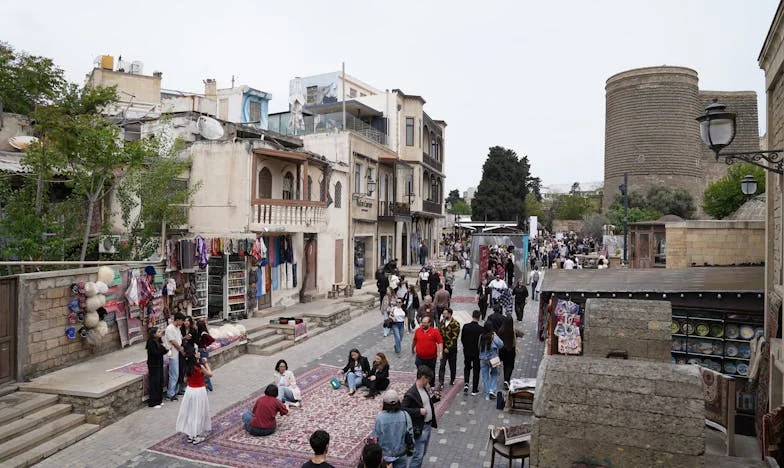Three A.M. Grit: My Fight for a Better Life on the Streets of Chicago
“You’re gonna be late again, Ethan!” Mom’s voice ricocheted through our cramped apartment, slicing through the syrupy darkness of three in the morning. I blinked hard, the ache in my bones a familiar welcome to another day. My little brother, Jake, groaned and rolled over on the mattress we shared, burying his face in the pillow as if hiding from the world could buy him a few more minutes of peace.
I stumbled to the tiny bathroom, splashed ice-cold water on my face, and stared at my reflection. Seventeen, but lines already carved beneath my eyes. I pulled on my orange safety vest, the badge of my before-dawn existence, and grabbed my backpack stuffed with textbooks and stale granola bars. The city outside was still hushed, only the low hum of early buses and the distant rumble of the L breaking the silence.
My mom met me at the door, her face tight with exhaustion, her coat thrown over a faded Walmart uniform. “Don’t forget your gloves. It’s freezing out there.”
“I won’t. Love you, Ma.”
“Love you, too. And Ethan?” She hesitated, worry flickering in her eyes. “Don’t work too much. You need rest.”
I forced a smile. “Rest is for people who can afford it.”
Out in the alley, the truck idled, headlights painting yellow streaks on the brick. Carlos, my supervisor, waved. “C’mon, Miller! The city doesn’t clean itself.”
We hit the streets, our boots crunching through last night’s sleet, steam rising off the grates as we emptied overflowing cans and dodged rats fattened by the city’s waste. My hands went numb even through thick gloves, but I kept moving, kept thinking about Physics homework, about the scholarship letter I tucked in my pocket for luck, about the dream I dared to keep alive: to become an engineer, to build something that would last longer than these piles of garbage.
By seven, my shift ended. I jogged three blocks to catch the 151 bus, heart pounding as I reviewed equations in my head. At school, I sat at the back, head down so nobody would see the grime under my nails or smell the city clinging to my clothes. Mr. Timmons, my AP Calculus teacher, caught me after class.
“Ethan, you aced the test. Again.”
I shrugged. “Just lucky, I guess.”
He shook his head. “Luck doesn’t get you a full ride to Northwestern. Hard work does. Don’t sell yourself short.”
I wanted to tell him about the nights I studied by the flicker of our busted kitchen lamp, about the times I fell asleep on my textbook because I couldn’t afford to waste a minute. But words stuck in my throat. Pride, maybe. Or fear.
My friends drifted away after freshman year. They didn’t get the grind. They’d text about parties I never had time for, new games I couldn’t afford. I’d see them laughing in the halls, easy and light, while I mapped out my day down to the second: work, class, homework, repeat.
At home, Mom juggled two jobs, Jake got into fights at school, and Dad—when he called—always promised he’d send something from Detroit. Sometimes he did, but mostly he didn’t.
One night, I caught Jake smoking out on the fire escape.
“Seriously, Jake? You’re thirteen.”
He glared at me, defiant. “What do you care? You’re never here.”
His words stung. “I’m doing this for us. So you don’t have to—”
He cut me off, voice sharp. “So I don’t have to be like you? Haul trash and beg teachers for extensions? Maybe I don’t want to be tired all the time.”
I wanted to yell. Instead, I sat down beside him, the city lights stretching into infinity. “I just want something better for both of us. Don’t give up before you even start.”
He shrugged, flicked the butt into the alley. “It’s easy for you.”
I laughed, bitter. “Nothing about this is easy. But if I stop now, it’s all for nothing.”
As winter melted into spring, the scholarship became more real, more terrifying. I worried about leaving Mom and Jake, about the bills, about whether I belonged in a world of privilege and clean fingernails. I felt small at orientation, my thrift-store clothes screaming that I didn’t fit.
But then, something shifted. My roommate, Mark, asked without judgment, “So, what’s your story?”
I told him about the trash routes, the long nights, the fear that I’d never be enough. He nodded, listened. “You made it here. You belong.”
I held onto that, every time I felt the urge to quit. Finals week, I called home. Mom picked up, her voice ragged.
“Ethan? Is everything okay?”
“Yeah, Ma. I just… I miss you guys.”
She was quiet. “We miss you, too. But I’m so proud. Keep going. For all of us.”
I hung up, staring at the campus lights outside my window. I thought about the city, the people still grinding through cold mornings, the family I wanted to save, and the future I was building brick by brick.
Now, as I walk across the stage to get my diploma, my hands are steady. I see Mom and Jake in the crowd, eyes shining, and I know every sleepless night was worth it. But I can’t help wondering: How many others are out there—kids, parents—doing whatever it takes, invisible in the early morning dark? When will hard work finally be enough for all of us? Would you have kept going, if you were me?
